Qualität statt Quantität

Weltenwanderer
März 11, 2021
Hochwasser
März 15, 2021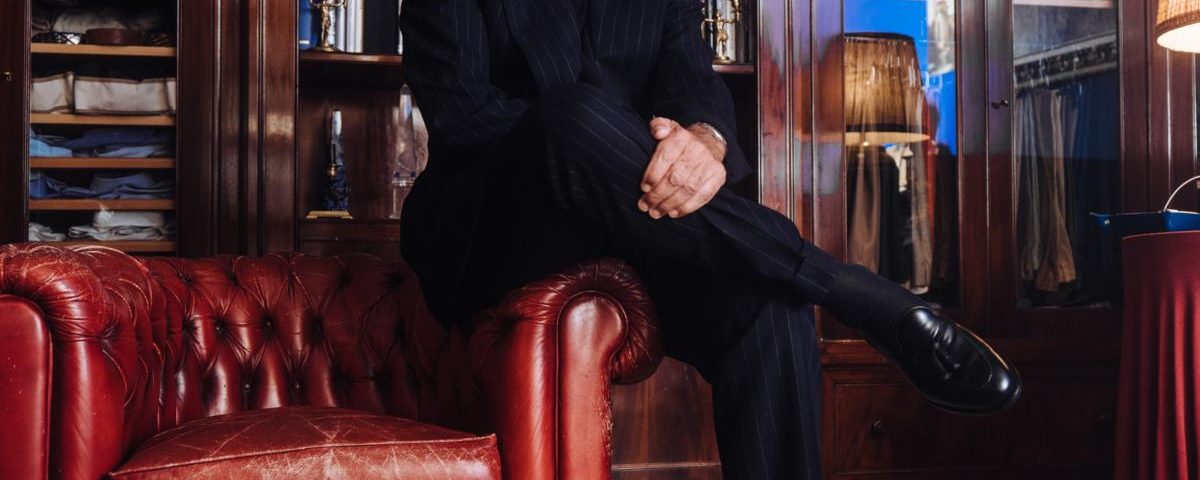
Bislang war Morjas ein absoulter Geheimtipp aus Skandinavien – jetzt launcht die smarte „direct-to-consumer“-Schuhmarke aus Stockholm endlich auch auf dem deutschen Markt!
Der Zugang zu den qualitativ hochwertigen Schuhen ist einfach, aber auch effektiv, denn Morjas wählt den direkten Weg zu den Kunden via www.morjas.de. Der Online Pure Player setzt dabei auf das Motto „Weniger ist mehr“. Was heißt das? Keine Einzelhändler, keine Zwischenhändler und keine unnötigen Kosten. Morjas folgt konsequent der Prämisse, dass der Kauf von Qualitätsschuhen einfach und bezahlbar sein soll. In Spanien werden die schicken Schuhe auf Goodyear-Rahmen von Hand gefertigt. Dabei liegt der Fokus ganz klar auf einem hochwertigen als auch zeitlosen Design, das in 50 Jahren noch genauso essentiell sein wird, wie vor 50 Jahren. Was lange währt, wird endlich gut, oder?
Bei Morjas glaubt man fest daran, dass es besser ist, ein paar Dinge sehr gut zu machen, statt viele Dinge nur mittelmäßig. Deshalb bietet Morjas nur dauerhafte Kollektionen an, die perfektioniert wurden. Derzeit umfasst die Morjas „Permanent Collection“ 9 Modelle in jeweils 5 coolen Signature-Farben. Die Preise reichen von EUR 229,00 für The Penny Loafer, The Tassel Loafer, The Oxford, The Double Monkstrap & The Single Monkstrap, über EUR 249,00 für The Derby, The Plain Toe Blucher & The Chukka bis EUR 295,00 für The Chelsea in Black, Burgundy oder Brown Calf sowie Brown oder Medium Brown Suede Leder.
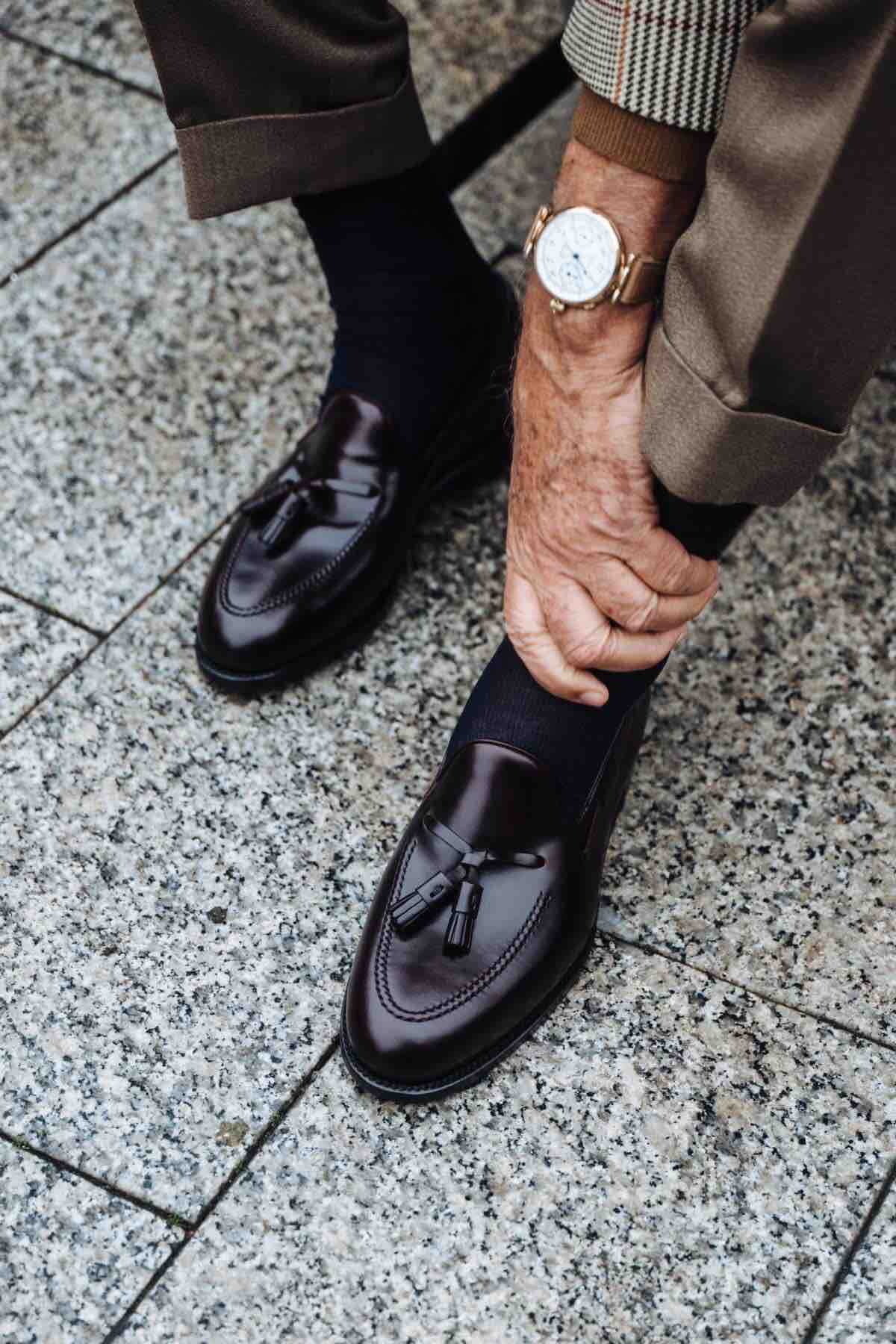
Der Tassel Loafer in Burgunder Kalbsleder. Am Handgelenk: Longines in Gold (Single Button Split-Seconds Chronograph) mit Emaille-Ziffernblatt.
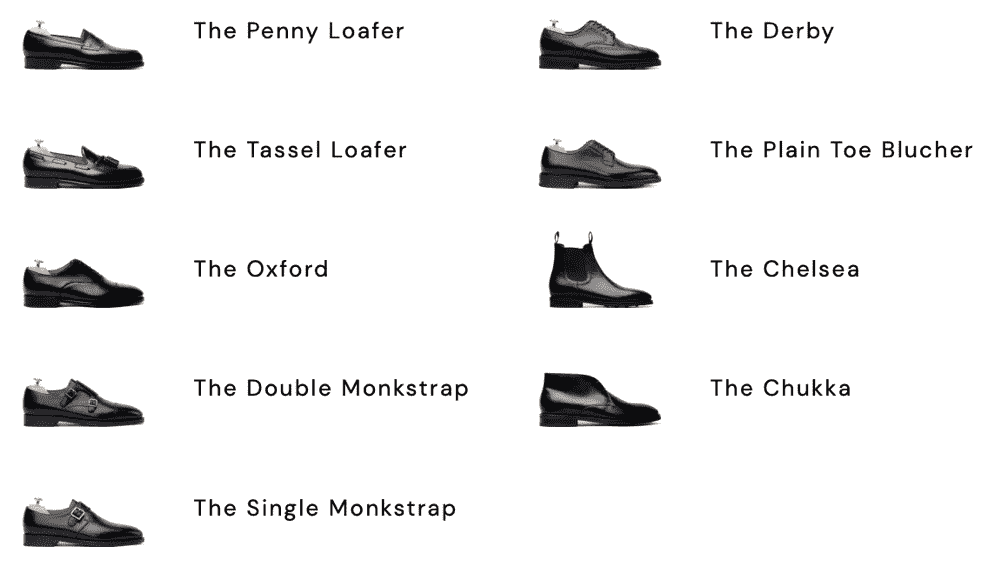
In dem kleinem spanischen Dorf Almansa werden die Schuhe von Morjas per Hand gefertigt. Bereits seit den 1920er-Jahren werden in der in Familienbesitz befindlichen Fabrik in der südspanischen Provinz Albacete Schuhe von höchster Qualität produziert. In den Schuhen steckt eine wahre Gedulds- und Fleißarbeit, denn die Herstellung eines Paares dauert ungefähr acht Wochen und umfasst 128 ausgeklügelte Arbeitsschritte, angefangen vom ersten Zuschnitt bis zum letzten Finish. Dabei werden insgesamt über 61 zugehörige Stationen durchlaufen. In den Händen hält man dann einen akribisch verarbeiteten Schuh von höchster Qualität, der das Warten definitiv wert ist.
Morjas versteht auch etwas von Raffinesse, denn die Goodyear-Rahmentechnik gilt als die weltweit raffinierteste Methode, Schuhe herzustellen. Ein Goodyear-Rand ist ein Lederstreifen, der um den unteren Rand des Schuhs genäht und an der Brandsohle als auch dem Obermaterial befestigt wird. So lässt sich der Rahmen leicht abtrennen, wodurch sich die Sohle löst, ohne den Rest des Schuhs zu beschädigen – er kann also mehrfach ersetzt werden. Weiter geht es mit der Außen- und Innensohle, hier wird zwischen den Sohlen eine Korkfüllung angebracht. Dieser zu Anfang steife Kork passt sich dadurch dem Fuß ideal an. Durch die Körpertemperatur erwärmt sich der Kork und bildet so auf ein natürliche Weise ein maßgeschneidertes Fußbett. Zusätzlich dient der Kork auch dazu, Feuchtigkeit zu eliminieren. Bei richtiger Pflege halten die Schuhe also ein Leben lang.
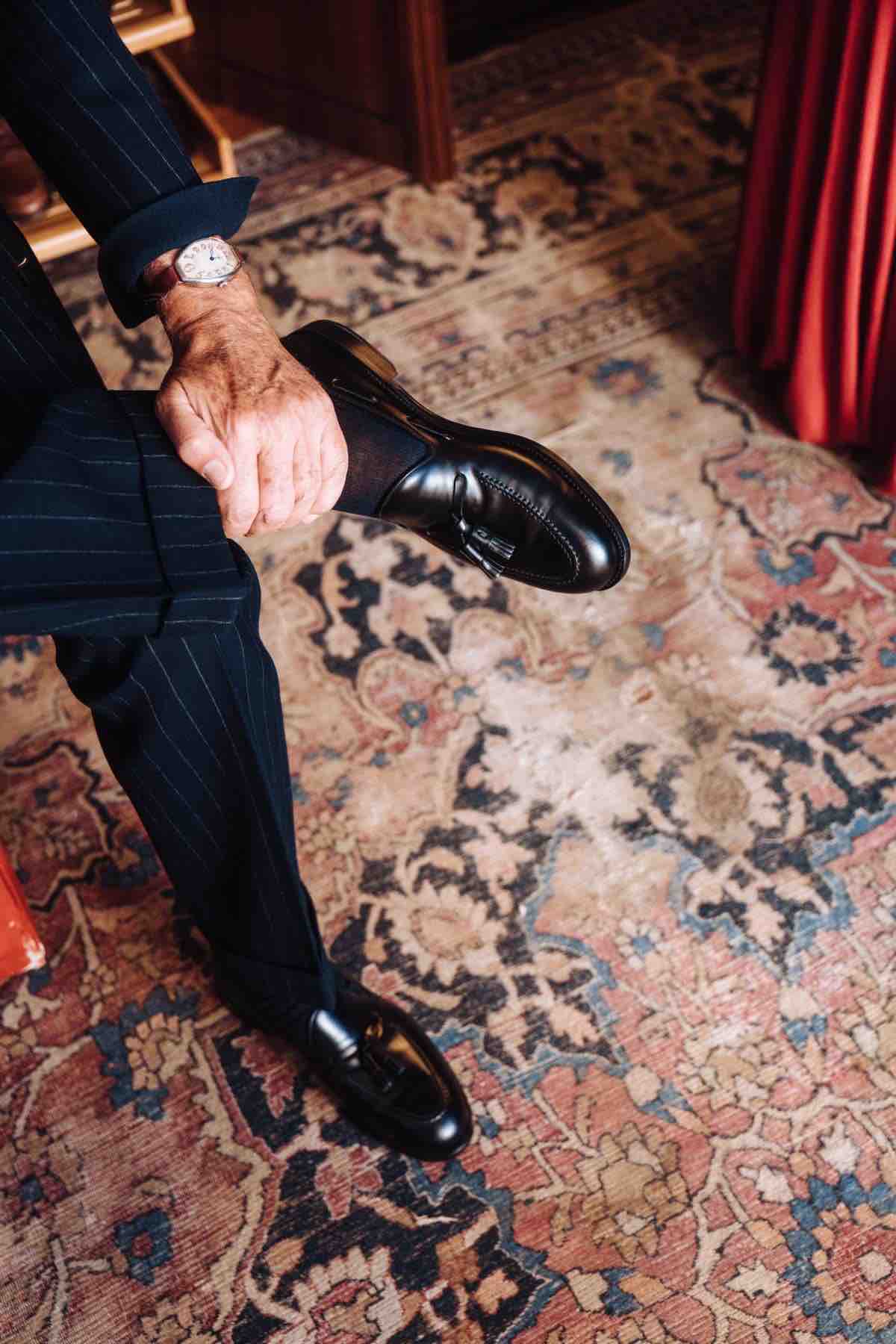
Die soziale Mission
Morjas möchte mit seinen Schuhen auch etwas Gutes tun: 1% des gesamten Umsatzes wird an die Organisation The Shoe That Grows gespendet. Kenton Lee, Gründer von „The Shoe That Grows“, beschloss, einen wachsenden Schuh zu entwickeln. Die Idee entstand, nachdem er gesehen hatte, wie Kinder in Kenias Waisenhäusern überall barfuß liefen, weil sie schnell aus ihren Schuhen herauswachsen.
Mit seinem flexiblen Material kann Lee’s Schuh in fünf Größen und auf drei verschiedene Arten wachsen: nach vorne, nach hinten und an den Seiten. Durch die lokale Produktion schafft „The Shoe That Grows“ Arbeitsplätze dort, wo die Schuhe am dringendsten gebraucht werden. In den letzten 1,5 Jahren wurden so allein in Äthiopien 40 Arbeitsplätze geschaffen.
Morjas produziert Kampagne mit Horologie-Ikone John Goldberger
Die hochwertig von Hand produzierten und zeitlos designten Schuhe verkörpern Eigenschaften, die dem bevorzugten Statussymbol elaborierter moderner Männer gut zu Gesicht stehen. Einer der weltweit wichtigsten Sammler und Experten mechanischer Uhren, John Goldberger, teilt Morjas‘ Leidenschaft für Qualität im Detail wie kein zweiter.
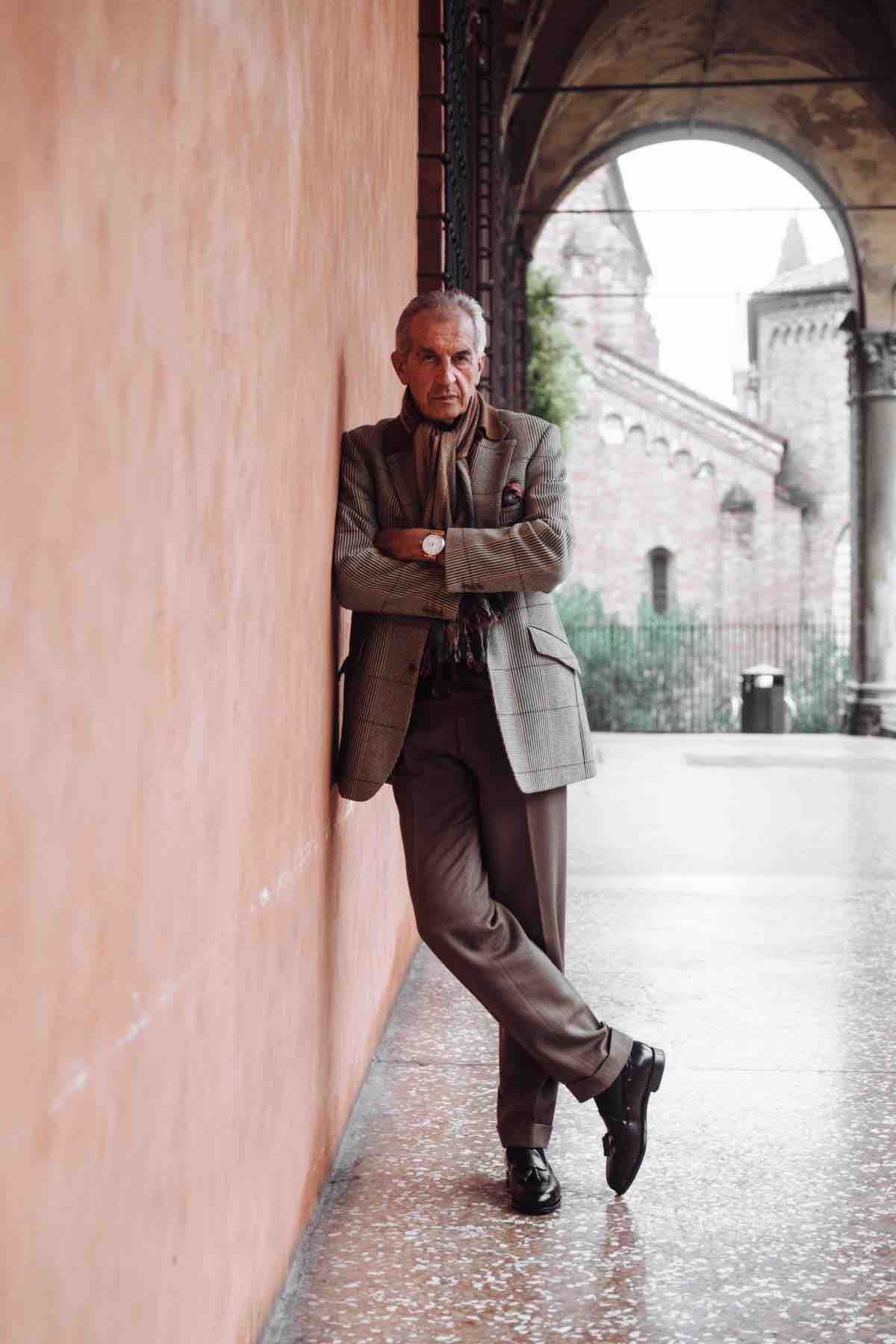
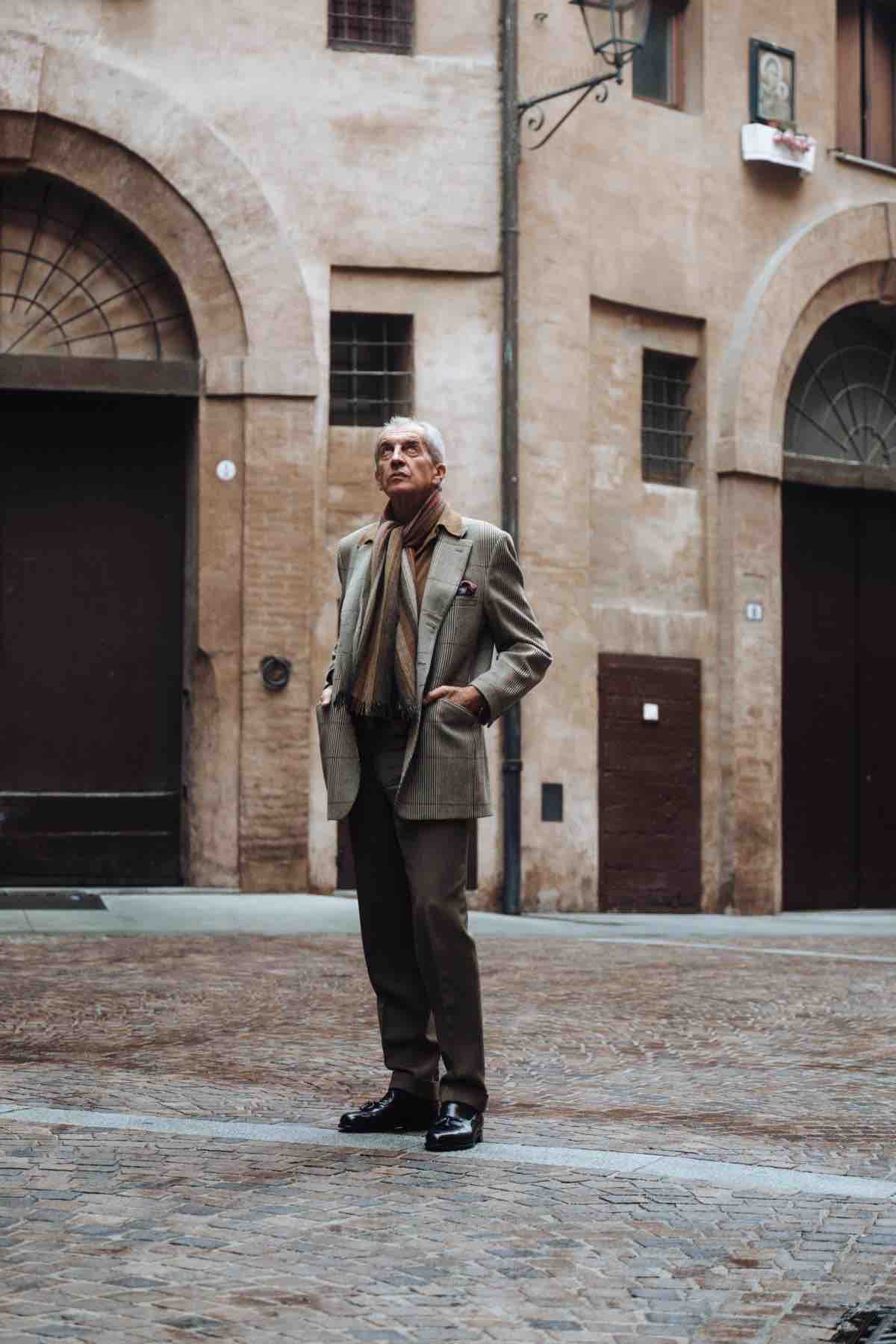
Auro Montanari, aka John Goldberger, lebt und arbeitet in Bologna, Italien. Seine Faszination für Uhren entdeckte er in den 1970er-Jahren. Seitdem sammelt er alles, was tickt und Uhren, die vorzugsweise zwischen den 1930er- und 1960er-Jahren hergestellt wurden. Sein Studium in Grafikdesign in Venice Beach, Kalifornien schärfte seinen Blick für handwerkliche Raffinesse. Die Morjas-Kampagne mit John Goldberger wurde in seinem Haus in Bologna produziert. Hinter Kamera stand Abraham Engelmark, Creative Direction sowie Styling stammen von John Goldberger und Henrik Berg.
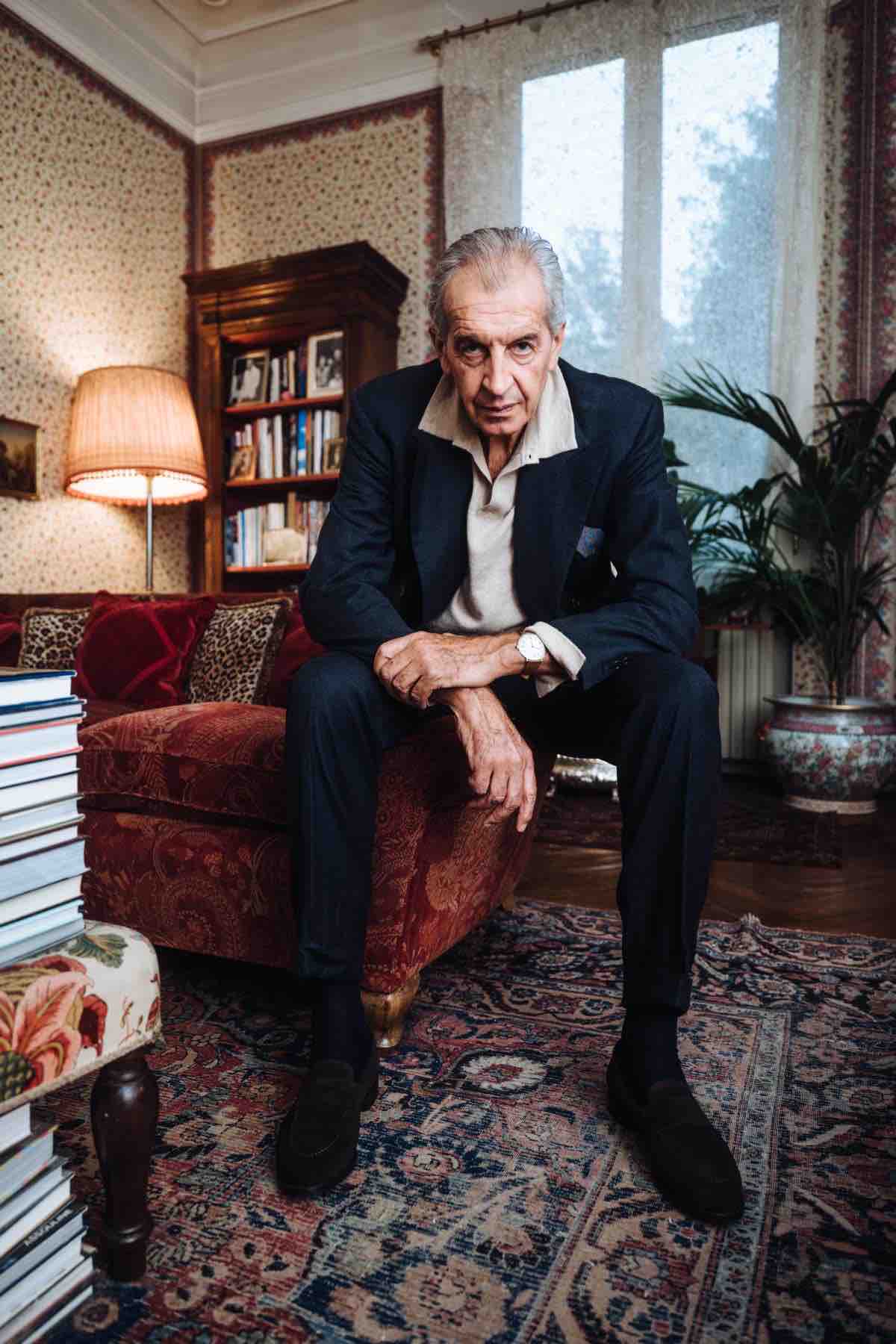
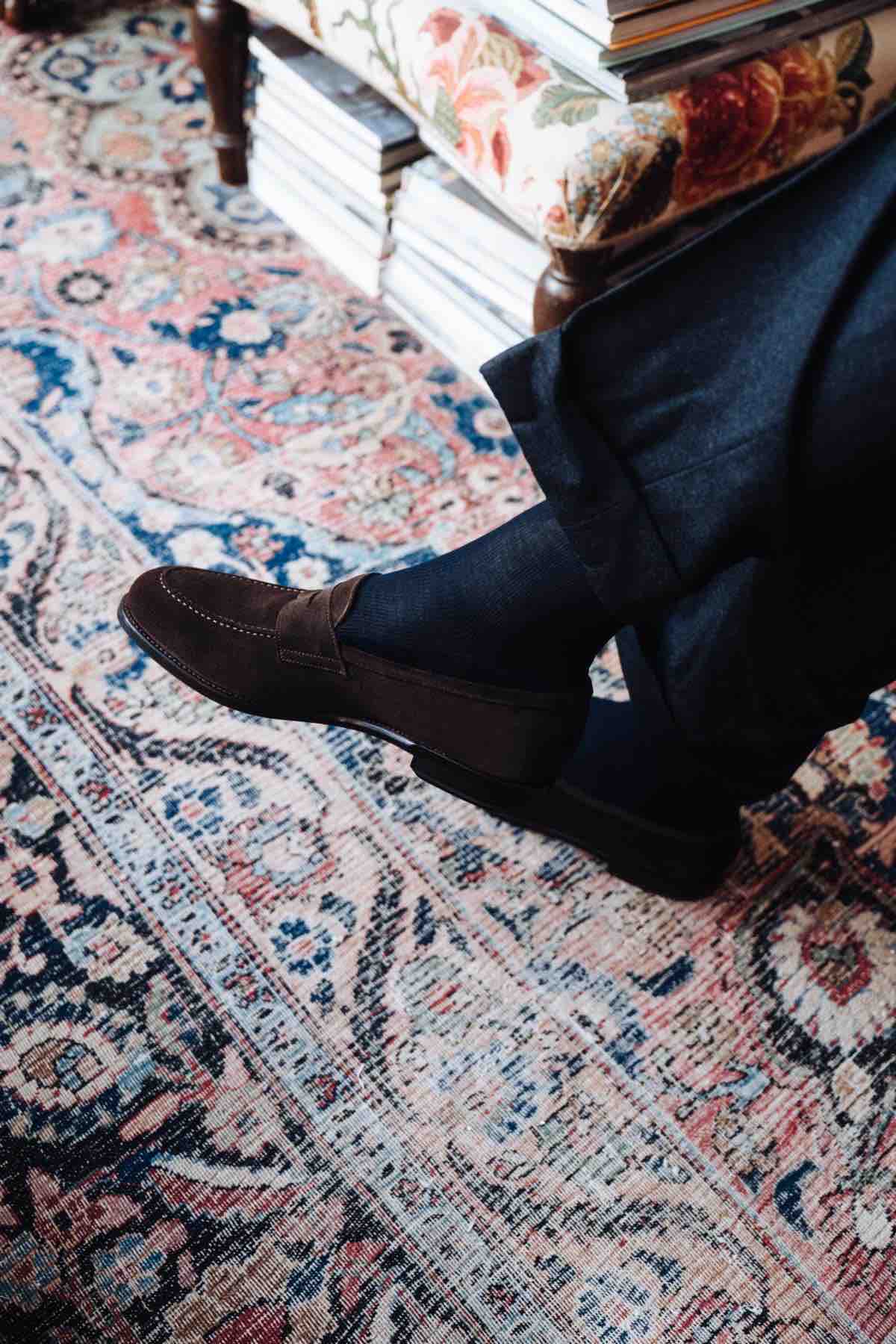
Q&A mit Henrik Berg
Wer noch weiter lesen will, für den gibt es hier ein exklusives englischsprachiges Interview mit dem Morjas-Gründer Henrik Berg.
1. Describe me the style of Morjas. Modern Dandy? Modern Business?
Timeless. Personal. Free. The beauty with timeless quality shoes are the endless possibilities on how to
style your outfit. A pair of penny loafers to a pair of jeans and white shirt creates casual elegance. A pair of the same penny loafers to a suit creates a slightly sharper outfit than a traditional business suit.
So we like to say that the style is personal and timeless for the modern man, whether you’re mostly using our shoes at work or in your everyday life.
2. Do you live the style yourself?
Yes of course I do. I like to play with contrast. Again, a pair of timeless loafers with a pair of vintage Levi’s jeans, a turtleneck sweater and military jacket is personal, sexy and timeless.
3. What fascinates you about shoes?
How much it can do for an outfit. Put on a pair of well polished quality shoes and your home. Literally.
4. What makes the shoes so special? Do you use special materials?
Obviously the biggest thing is that our kind of shoes usually costs north of €500. We’ve changed the business model and only sell direct-to-consumer online so we skip selling to retailers which allows us to bypass middlemen. So that’s the biggest thing.
All shoes are made by hand using the Goodyear welt technique which is considered the most sophisticated method in shoe construction. It basically means that you can re-sole the shoes when needed which allows for decades of wear.
All materials are sourced from Spain and Italy.
6. Is a women’s line planned?
At the moment we’re focused on perfecting shoes for men.
7. How did you find the factory in Almansa? How did you get in contact with it?
I visited 11 factories in Spain. I went ahead with 2 for the product development phase. Then I went all-in with one which is the same factory that we are working with today.
It’s a family-owned factory in its 3rd generation that has specialized in hand-made shoes since 1913. So they are extremely good at what they do.
We have very close relationship with them and are now close friends.
8. Did you have support when you started? Did you start with equity or crowdfunding?
I saved money during my previous job which I took to get going. Then I took in some very small amounts from family and friends to get off the ground.
9. Did you have to take setbacks too? If so, which ones and what did you learn from them?
Haha, of course. All the time.
One delivery was stolen when the truck driver stayed over night at a motel. Thank God it was insured. But you learn from everything and it’s crazy how much you learn just by running the business.
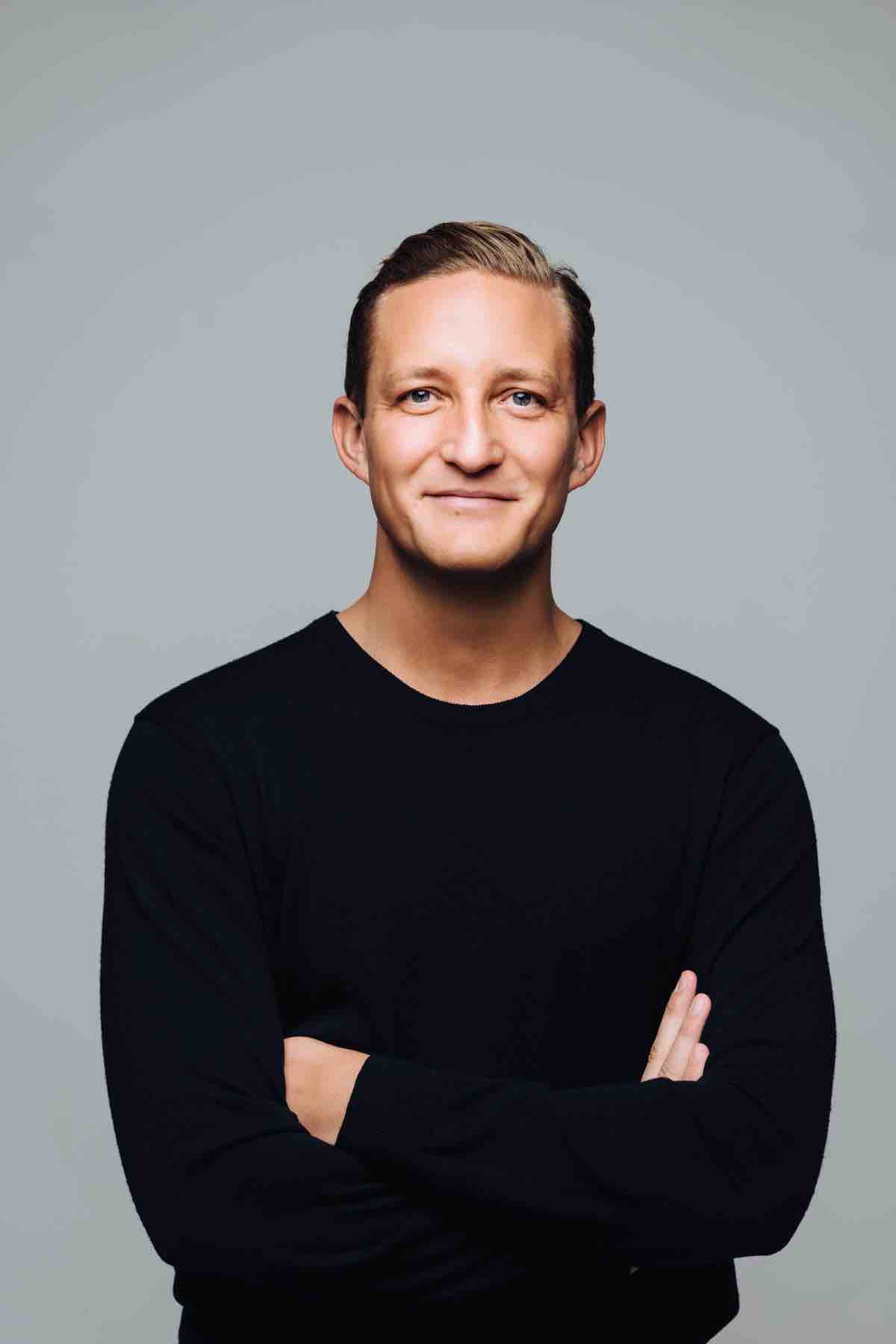
10. What has changed for you personally after the founding?
I’ve grown a lot as a person and learnt a lot of running your own company which is extremely fun and exciting.
One thing I said to myself from the beginning was: execution is everything. You can have an idea, but if you don’t execute it’s worth nothing. And this couldn’t be more true. The importance of execution is really everything.
And on a personal level it’s really exciting to see an idea come to life. That’s the beauty with us. When we get an idea that we believe in we can just do it. That’s a sense of freedom which is very stimulating.
11. Which processes do you prefer to be involved in (design, production etc.)?
I like to have an involvement in everything of course, but that’s why I’ve spent to much time building the best team possible. Everybody are best at what they do.
I mainly focus on marketing/sales and big-pictures growth vehicles, such as collaborations or launches in new countries.
12. How is a new shoe born? From the idea to the finished product.
It starts with a combination of customer insight with team discussions. We draft a design. Send it to the factory. Then we start the sample development. From there it’s very hands-on with many rounds back-and-forth from the factory and our HQ in Stockholm. It usually is a minimum of 10 rounds before we finalize a product.
13. How do you find your rest? Your balance?
I meditate every morning and run 4-5 times a week.
I practice being in the now when I meet family and friends. Not using my phone all the time and instead listening and enjoying being present.
Then I like cooking and treat myself with a crisp Gin & Tonic 🙂
14. Who is your role model?
I have many. My wife for standing out with me when we had 200 pairs of shoes in our small apartment and listening to me when I talk about Morjas 24/7.
My parents and sister for their hearts of gold.
My grandmother for always speaking her mind and being true to herself.
The list goes on. I’m inspired by many.
15. Has your role model influenced you in the founding, in your ideas?
Morjas was really born out of personal frustration. I had a serious itch to make things better and smarter. So this was more from a personal standpoint. But I am eternally grateful for being brought up by my parents who have always taught me to think for myself and realizing that life truly is a wonderful gift.
16. How does your Spanish heritage influence Morjas?
Since I’m both Swedish and Spanish and grew up in Spain, Morjas really combines the best of two worlds: A Scandinavian approach to minimalistic design with a Spanish Mediterranean flair.
So when you browse our website or look at our collection it’s very clean and simple. Same goes for the packaging and branding. But then we like to mix that up with content that breathes both Mediterranean flair and Scandinavian style.
Spain has a long history with craftsmanship in shoes, leather goods and horse saddles so it made a lot of sense having the production there too.
17. When did you decide to start your own business?
I got the idea to Morjas out of personal frustration. When I asked around a learned a lot of other guys were tired about the situation too, so I decided to do something about it.
But from idea to decision it was about 3-4 months. From idea to market research and seeing that the data confirmed the idea.
18. How did you hear about “The Shoe That Grows”?
I was looking for a non-profit partner and struggled to find an organization where I could track the money to the source and really see the concrete impact. I got “The Shoe That Grows” recommended from a friend in the US and then contacted them. Their founder, Kenton, replied in just a few minutes and then we jumped on a call and hit it off from first contact. And the rest is history.
19. Does Covid have an impact on your sales?
We are fortunate and grateful to be an online-based brand so we continue to grow a lot. But we have had some challenges on the supply front which has led to delayed launches.
But at the end of the day we really can’t complain since we are in a very fortunate position.
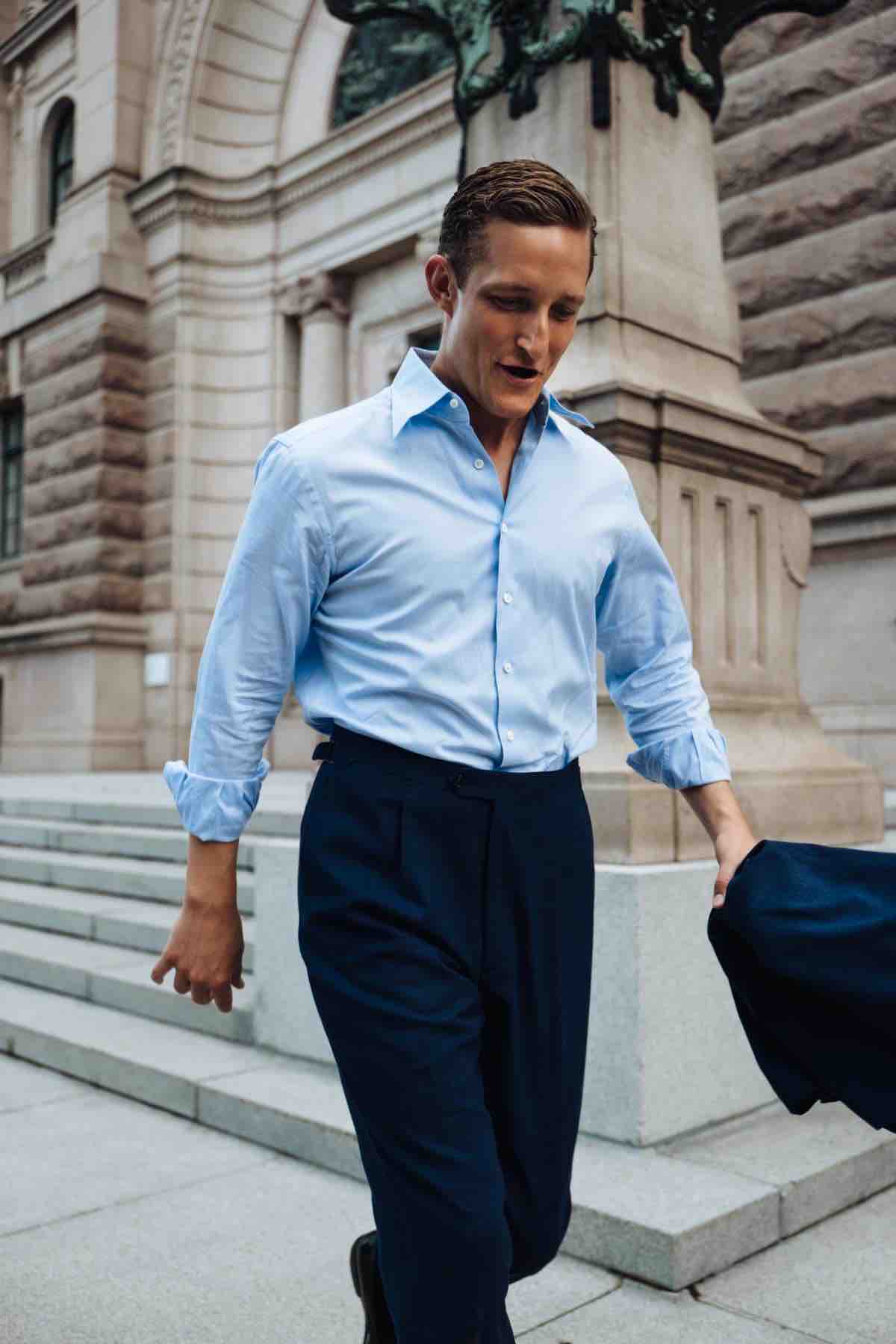
Q&A: Business & Finance
1. How was the launch financed?
I saved money during my previous job which I took to get going. Then I took in some very small amounts from family and friends to get off the ground.
2. How do the numbers look this quarter compared to last quarter / or compare the years?
We are growing about 250% compared to same period last year.
3. What could be the reason for the numbers being better or worse?
It was just about a year ago that we formed a team and really started our expansion. So it’s a combination of increased team, marketing and product expansion. We’re just getting started.
4. Henrik Berg never had anything to do with fashion before, how was the transition for him into the industry?
I’m an industry outsider and came in with fresh eyes. It’s very refreshing to do the things you want and not follow industry norms.
To me it was strange that all brands are so messy and confusing. I wanted to simplify things and make it easier and more exciting for the customer to shop with us.
One of the first things I did was to ask myself: “What are the essential shoes that men really want?” Then I asked myself: “What are the essential colours?”. That led to the result of the permanent collection with a few curated styles that all come in the same 5 signature colours. People said to me: “You can’t have that model in that colour”, and so on and so forth. But I continued on my vision and today we have a collection that is so straightforward that your grandmother will understand it. It seems obvious now, but it was very new when I first launched.
I don’t see Morjas as a fashion brand. Fashion changes from season to season and is trend sensitive. Our shoes were relevant 50 years ago, they are relevant now, and they will be relevant for the 50 years to come. That’s the beauty with creating timeless styles.
So we let the shoes stay classic. And let everything around the shoes be progressive, modern and contemporary.
I stil have no idea when the fashion weeks are or who is doing what. I’m focused on the customer and want to deliver value to the modern man who values timeless quality.
5. Did he have help?
I founded the business myself, but I am immensely grateful for the patience of my wife who stood out with me when we had 200 pair of shoes in our small apartment and used it as our fulfillment center.
6. How did he find the factory in Almansa?
I visited 11 factories in Spain. I went ahead with 2 for the product development phase. Then I went all-in with one which is the same factory that we are working with today.
It’s a family-owned factory in its 3rd generation that has specialized in hand-made shoes since 1913. So they are extremely good at what they do. We have very close relationship with them and are now close friends.
Der Beitrag Qualität statt Quantität erschien zuerst auf Quality Magazine.

